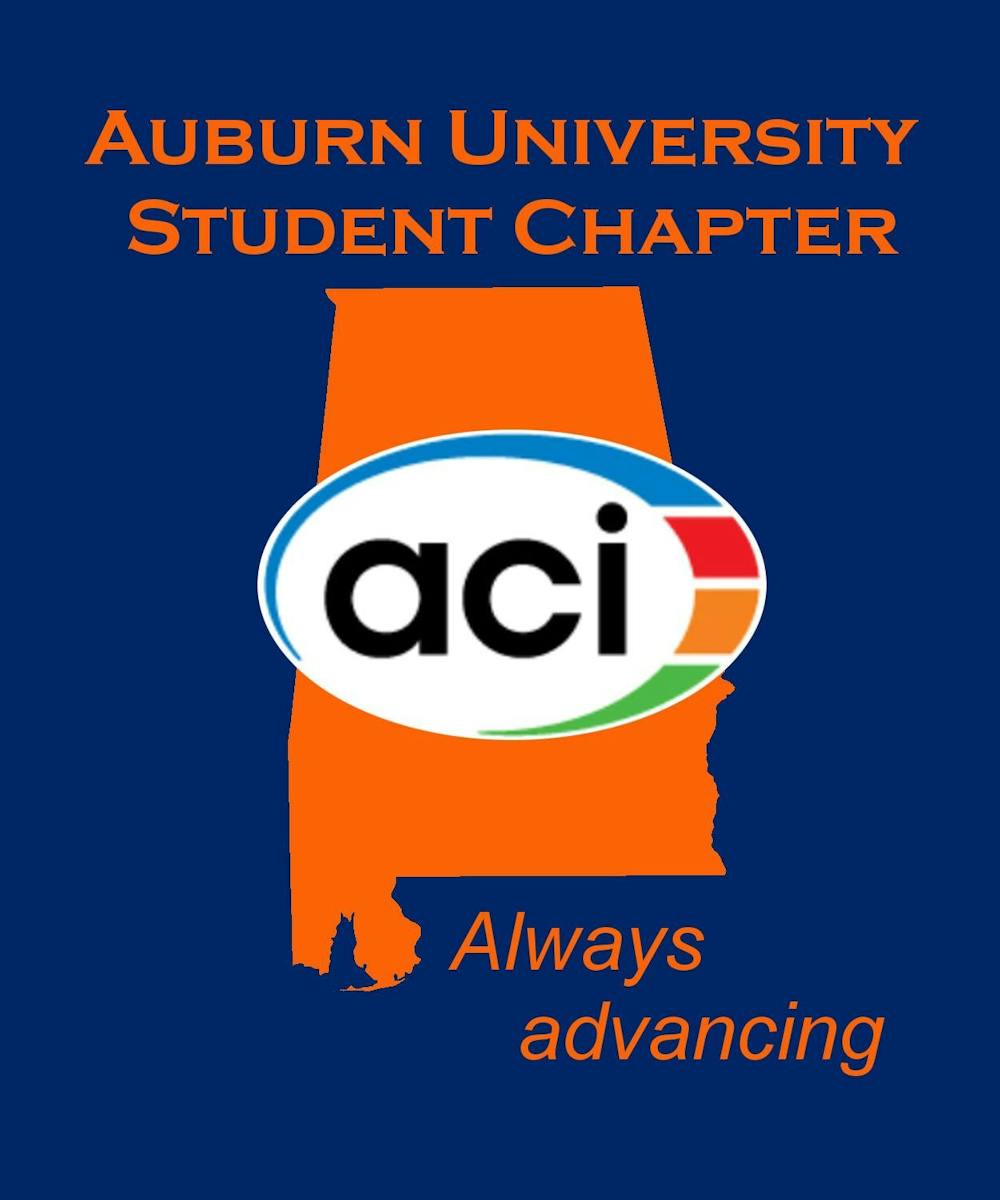Look around for a second. Look at the ground, at the walls, maybe the ceiling.
Try to find some concrete. It might be in the sidewalk you’re walking on or part of the ceiling above your head. Regardless, unless you are in the middle of a field — which is definitely a possibility here on the Plains — it’s likely that a chunk of concrete is somewhere nearby.
For most people, that’s a fact that goes unquestioned and unexplored. Concrete is a common occurrence in daily life, and as long as it continues supporting our weight and refrains from falling on top of us, there’s no apparent reason to think about it too much.
But the only reason you don’t have to think about concrete is because there is a dedicated group of students, professors and professionals who think about it a lot.
For many Auburn students, involvement in a club or organization can improve or even define their college experience.
There are always the standard options like SGA, Emerge or some kind of political group, but it can also be beneficial to find a smaller, more niche club.
Emily Mueller, a graduate student in civil engineering, runs a very niche club: the one for students who enjoy thinking about concrete.
Mueller is the president of the American Concrete Institute Student Chapter at Auburn, a club which focuses on the manufacturing, promotion and usage of concrete as a building material.
“We inform people about what concrete is and why it’s important,” Mueller said. “It is the most used material for construction in the world. So, it’s kind of a big thing for concrete to be such a renowned thing, and for many students to not know much about it.”
The ACI is a nationwide organization that the civil engineering department has worked with for a long time, but it wasn’t until 2014 that the official Auburn chapter was founded.
Since then, the club has grown to roughly 50 active members — many of whom are studying civil engineering — and has continually competed at annual ACI conventions.
According to Mueller, the group usually goes to the spring conventions where they can compete in events that test a team’s ability to manufacture and cast concrete.
“This year we are going to be competing in what’s called the concrete bowling ball competition,” Mueller said.
And yes, it’s as awesome as it sounds.
For the competition, the ACI gives teams the specs that they need to actually build a bowling ball out of concrete. They are told what kinds of materials can be used and the size and weight that the bowling ball should be.
“We’ll actually mix the concrete in our structures lab, and we’ll try different batches to see what works best and what breaks a certain way,” Mueller said.
Then, at competition, the bowling balls are inspected and, of course, bowled with. You can’t ask a group of concrete enthusiasts to spend months constructing a bowling ball out of a heavy and fracturable material without then allowing them to actually bowl with it.
According to Mueller, these conventions and competitions are great because they let all of the club’s members get experience and work together.
“It’s really good for the graduate students to have undergrad teams doing [the mixing] because then the undergraduate students learn how to mix concrete and how to do all the forming, but the graduate students get a chance to teach it too,” Mueller said.
This graduate and undergraduate divide is something the club has struggled with since concrete is often not introduced to civil engineering students as a material until late in their college careers.
Other ways that the ACISC gets students together is by volunteering at service projects around this part of Alabama for groups and organizations that need help.
This past November, Mueller and the club helped Tuskegee First United Methodist Church repair and repave some of the sidewalks around the church buildings.
“Our members designed the new sidewalk, called the concrete company [for material], and we got to get some hands-on experience for our members to see what it’s like to place concrete, how to cure it and stuff like that,” Mueller said.
They also host Lunch and Learn Events, where students get a chance to meet with professionals in the construction industry.
“It’s a chance for the industry professionals to interact with the civil engineering students — not just ones interested in concrete but any kind of construction,” Mueller said. “It’s a way for them to be able to interact on a more personal level, kind of one-on-one with us.”
These kinds of events also give students an opportunity to share their research and concerns about the current industry practices.
“More recently, it’s not been so much [about] promoting concrete,” Mueller said. “It’s been more about environmentally friendly versions,”
The production and usage of cement, a component of concrete, can be quite toxic and largely contributes to greenhouse gas emissions. Not only that, but a lot of the materials needed to make concrete — which, again, is the most widely used construction material — are finite resources, meaning humans will run out of them. If we continue to waste these resources by overproducing material we don’t need, future generations may not be able to use concrete at all.
“You don’t want to use all the materials up and say, ‘Oh well, we had a great time, good luck to y’all; just figure it out,’” Mueller said.
For that reason, this club and other civil engineering students at Auburn are researching additives, materials that can be added to a mixture to strengthen and increase a batch of concrete, as ways to limit the amount of these materials humans use.
This kind of gritty research requires a researcher who is excited about the uses of concrete. That’s not most people, but thankfully, it’s some of them.
The ACISC is an example of the wide range of clubs at Auburn. It’s an example of people with a common interest and a shared passion getting together to discuss and learn and compete together.
According to Mueller, many civil engineering majors know each other already since the major is so small, but this club is a way for a bunch of them to stay connected.
“It’s a smaller club, so we can be a lot closer,” she said. “It’s more of a family versus something you just join to put on your resume. You actually enjoy your time here.”
That’s really all any Auburn student can hope for: a sense of family among friends.
Your interest may not be concrete. It may be horseback riding, creative writing, singing, acting or poultry science. Maybe you’re interested in nonprofit work, education or studying abroad.
There are clubs for political advocacy and religious study, and there was briefly a pizza club.
Whatever your niche is, Auburn has a place for it. If there’s not a club already, you can become its first president.
In other words, whoever you are, Auburn has a place for you.
That place may not be set in stone, but it might be set in concrete.
Do you like this story? The Plainsman doesn't accept money from tuition or student fees, and we don't charge a subscription fee. But you can donate to support The Plainsman.





